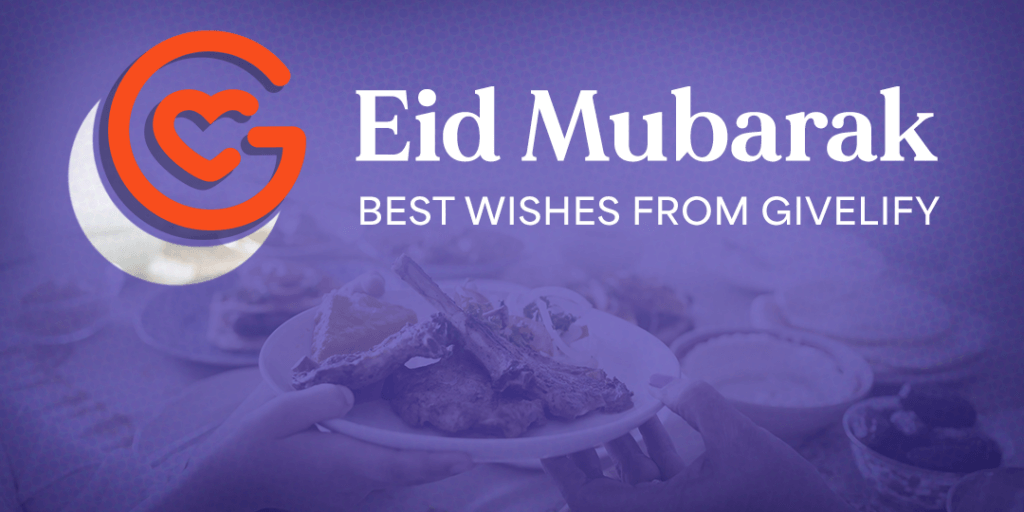Eid al-Fitr: Festival of Breaking the Fast and Giving Back

Eid 2022 in the U.S. begins the evening of May 1 and ends the evening of May 2. “Eid Mubarak” is a common greeting used during the holiday.
Nearly everyone is familiar with Ramadan, Islam’s holy month that includes daily fasting from dawn to sunset. But self-discipline – from food and liquids, as well as negative thoughts and bad intentions – isn’t all Ramadan should be known for.
Ramadan is also a month of prayers, generosity, and good deeds, and it ends with a big celebration.
Eid-al-Fitr marks the end of Ramadan. Eid is one of the two major religious festivals in Islam. Muslims celebrate Eid on the first of Shawwal (the 10th month on the Islamic calendar) after one month of fasting during Ramadan, which is the ninth month.
In Muslim majority countries, such as Bangladesh, where I live, Eid is a public holiday that lasts three days. All offices, educational institutions, and shopping malls are closed so Muslims can enjoy the holiday with our loved ones.
Eid is the celebration of prayers, charity, social gatherings, festive meals, and generosity. For my Christian friends, Eid may remind them of Christmas.
Eid celebration
Nearly 2 billion Muslims all around the world, including me and my family, celebrate the day with a special prayer to occur only on the morning of Eid, which is in addition to the five daily prayers for Muslims.
This prayer is usually performed in jamaat (in groups) in Eidgahs, which are large open fields or indoors in mosques in each neighborhood. Some Eid jamaats may have hundreds of thousands of people praying together.
After the Eid prayer a khutbah (Arabic for sermon) and du’a’ (supplication), which is the essence of worship, come next.
This is a day of joy to celebrate with our families. So, when we attend Eid prayer, we wear our best clothing, usually traditional Islamic dress, such as jubbah or panjabi for men and abaya or burqa for women.
After the prayer, we greet and hug each other and say, “Eid Mubarak,” which is Arabic for “Blessed Eid.” It is also a common way to simply wish someone a “happy Eid.”
We then visit relatives and friends and dine on delicious sweet dishes and other geographically popular cuisines. Each Eid, my family enjoys shemai, shahi tukda, crème caramel, and polao.
Children also visit their neighbors and to get Eidi from elders, which is bonus pocket money to celebrate the day.
Eid and generosity
Eid and generosity go hand in hand. There are two common acts of giving during Eid: Zakat al-Fitr (fitr) and Zakat al-Maal (zakat).
Fitr can be paid any time during Ramadan, as long as it happens before the Eid prayer. Fitr is a small mandatory donation all Muslims (men, women, and children) must pay. It is used to provide food and meals to poor Muslims so they can partake in the Eid festivities.
The amount due per person is 75 – 2310 Taka, which is the currency in Bangladesh and is equivalent to about $1 – $26.67. In Bangladesh, the fitr amount could purchase about four pounds of wheat flour, rice, or other staples.
The exact amount of fitr is calculated based on where one lives. In the U.S., fitr is about $15 per adult. For my Muslim friends in Canada, it is $30-40 CAD per adult. Each member of the family, including dependents, has to pay fitr. But the head of the household often pays the required amount on behalf of the family members.
The second example of Eid and generosity is the zakat, which is Arabic for “that which purifies.” This zakat is one of the five pillars of Islam and is equivalent to a taxation system. The zakat on wealth means Muslims must give 2.5% of their total annual savings to eligible recipients if the savings surpasses a certain amount.
Muslims must pay zakat once a year, and it can be given any time of the year. However, our belief in Islam is that any good deed done during Ramadan is rewarded 70 times over. So, most Muslims, including me, prefer to pay zakat during Ramadan.
Food and festivity
Eid comes after a month of fasting, but it is haram (forbidden) to fast on the day of Eid. That is why it is known as the Festival of Breaking the Fast. So, naturally, food becomes an important part of the celebration.
Sweet dishes and foods are often prepared and served for family members and guests. Each nationality celebrates with their own variation of dishes.
Eid is a festival for every Muslim and is a celebration of gratitude. After one month of hardship, we then experience the joy of Eid. And through generosity to the less fortunate, it is ensured that the festival becomes a source of happiness for everyone.
Recommended for you:



